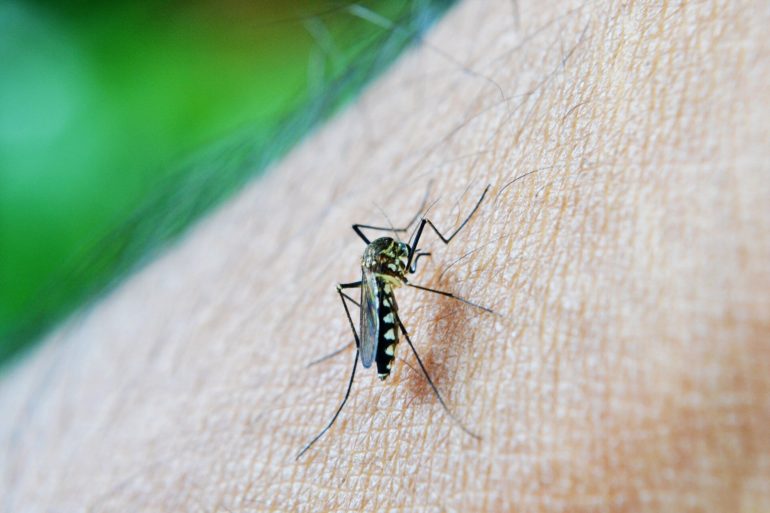A new computational model suggests that certain mutations that block infection by the most dangerous species of malaria have not become widespread in people because of the parasite’s effects on the immune system. Bridget Penman of the University of Warwick, U.K., and Sylvain Gandon of the CNRS and Montpellier University, France, present these findings in the open-access journal PLOS Computational Biology.
Malaria is a potentially lethal, mosquito-borne disease caused by parasites of the Plasmodium genus. Several protective adaptations to malaria have spread widely among humans, such as the sickle-cell mutation. Laboratory experiments suggest that certain other mutations could be highly protective against the most dangerous human-infecting malaria species, Plasmodium falciparum. However, despite being otherwise benign, these mutations have not become widespread.
To help clarify why some protective mutations may remain rare, Penman and colleagues developed a computational model that simulates the epidemiology of malaria infection, as well the evolution of protective mutations. Importantly, the model also incorporates mechanisms of adaptive immunity, in which the immune system “learns” to recognize and attack specific pathogens, such as P. falciparum.
Analysis of the model’s predictions suggests that if people rapidly gain adaptive immunity to the severe effects of P. falciparum malaria, mutations capable of blocking P. falciparum infection are unlikely to spread among the population. The fewer the number of infections it takes for people to become immune to the severe effects of malaria, the less likely it is that malaria infection-blocking mutations will arise.
“Understanding why a potential human malaria adaptation has not succeeded could be just as important as understanding those which have succeeded,” Penman says. “Our results highlight the need for further detailed genetic studies of populations living in regions impacted by malaria in order to better understand malaria-human interactions.”
Ultimately, understanding how humans have adapted to malaria could help open up new avenues for treatment.
Discovery of key molecules involved in severe malaria – new target for malaria vaccine
More information:
Penman BS, Gandon S (2020) Adaptive immunity selects against malaria infection blocking mutations. PLoS Comput Biol 16(10): e1008181. doi.org/10.1371/journal.pcbi.1008181
Provided by
Public Library of Science
Citation:
New model may explain rarity of certain malaria-blocking mutations (2020, October 8)
retrieved 8 October 2020
from https://phys.org/news/2020-10-rarity-malaria-blocking-mutations.html
This document is subject to copyright. Apart from any fair dealing for the purpose of private study or research, no
part may be reproduced without the written permission. The content is provided for information purposes only.



